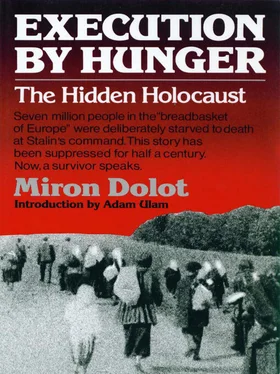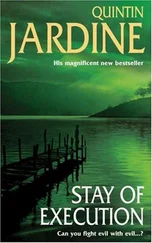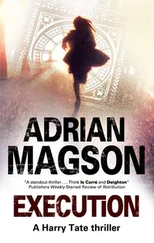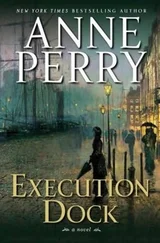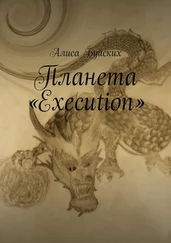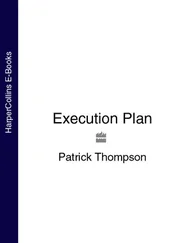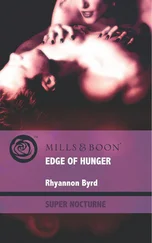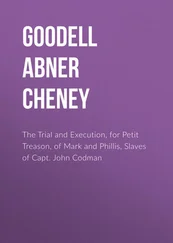On his side, Panas wanted to explain that the instructions should be understood as harrowing three times, and that he had intended to do this. However, he couldn’t do it at that particular time, for first, there were not enough harrows available in the collective farm, and second, the horse was too weak to pull three harrows hitched one after another.
But this explanation did not help Panas. Comrade Cherepin insisted that he did it deliberately. More than that, he called Panas a traitor, a saboteur, and, of course, an enemy of the people. That was too much. Even Panas, a poor farmer, could not take it anymore.
“You zhlob , leave me alone,” he shouted in a rage.
That was an unexpected twist of events for Comrade Cherepin. No one could dare call him names. He was the Party representative! Whatever he was doing was in the Party’s name. And whoever was dealing with him, was dealing with the Party and government embodied in his person. Consequently, those who were against him were also against the Party and government. Yet, this ignorant farmer dared to call him zhlob . To him this was inconceivable. He wouldn’t stand insults from anybody, especially from a farmer. That ignorant farmer must be taught a lesson. He, Comrade Cherepin, an old revolutionary, old Communist, a partisan of the Civil War, would teach Panas how to speak to a Party and government official. That coarse farmer, that beast, must be punished so that he, and for that matter, everybody would be discouraged from such behavior in the future toward the Communist officials. That dirty farmer would remember his lesson as long as he lived.
“You will have to explain that to the court,” Comrade Cherepin said through set teeth, trying to control himself. “You’ll be notified in due course. But remember, I’ll get even with you sooner or later!”
Panas was left alone. He knew that Comrade Cherepin meant what he said.
Well, what is zhlob , anyway? This question struck Panas with all its mystery as soon as Comrade Cherepin had left him alone. He thought he knew that word. To him there was nothing in it that could bring a man to court. He had heard it used many times. More than that, he himself had often been called it. But he never thought it an insult.
True to Comrade Cherepin’s word, Panas was now standing before the kolhosp court. Cherepin became so carried away by his tirades that we thought he had forgotten the court case entirely. Then, after an hour or so, he finally launched an attack against Panas. With the voice of an individual who had suffered a gratuitous insult, he let all know that during the performance of his official duty, he had been humiliated and discredited by the Citizen Panas Kovalenko. All noticed that he did not call him “comrade,” an address that was supposedly reserved for a loyal citizen only. We all knew this was a bad omen. As far as we were concerned, Panas was already convicted.
Having mentioned Panas’s name, he paused, looking at the audience as if asking for sympathy. Then Comrade Cherepin started to speak again. He now described Panas’ crime in a high-pitched voice. With each word the crime grew greater and greater, and Panas smaller and smaller.
“This creature,”—he pointed at Panas viciously with both his hands—“not only ignored the Party’s instructions, but also insulted me, your Party and government representative. And, remember—insulting me, he also insulted and disgraced the Party and government as well; he thus insulted our dear and beloved leader and teacher, our dear Comrade…” The name of the Party leader was drowned in spontaneous applause.
Comrade Cherepin looked around complacently. Panas gazed at his feet. When the applause faded away, Comrade Cherepin solemnly declared his verdict: Panas’s crime was of such a serious nature, that he recommended that the case be submitted to the state security organs and to the superior court.
All would have gone smoothly for Comrade Cherepin except for one question: how could Panas insult the Party, government, and Comrade Cherepin all at once?
“How did he insult you?” somebody shouted from the corner.
“What did he do?” someone else asked.
The hall came to life. Many wanted to know what actually had occurred between Comrade Cherepin and Panas. Somebody even asked whether there were witnesses to the incident, whatever it was. At first, Comrade Cherepin quietly gazed over the hall. Then he got up, drank some water, looked into the empty glass as if he wanted to see whether he had emptied it, slowly put it down, deliberately coughed into his fist, and casually rang for silence. The hue and cry disappeared, and a deathlike silence reigned immediately. No one dared move. We all waited for what he would say.
But Comrade Cherepin was in no hurry. He looked straight at the audience as if trying to hypnotize everyone in the hall. Then he spoke:
“Since the nature of the crime of Citizen Kovalenko is such that it discredits our beloved Party and government and myself, as your Party representative in your village, I do not think it advisable to repeat it here publicly.”
For a moment he became quiet. Then, in a clear voice, he added:
“I repeat my demand—and this is the demand of our beloved Party and government. As there is no doubt of the defendant’s malicious crime, his case must be submitted to the higher court and to the state security organs.”
He finished his pronouncement and deliberately paused as if in expectation of some opposition. Then he said something to Sydir, the judge. This was his order to start the court hearing. We knew that Panas was convicted before the court hearing even started. Sydir, as in previous cases, was at a loss for words. Bewildered and helpless, he looked now at the defendant, now at Comrade Cherepin. Then after Comrade Cherepin whispered something in his ear, he called the defendant and said:
“As Comrade Cherepin stated in his patriotic speech, you were disrespectful to our Party and government, and also to Comrade Cherepin.” Then, continuing in a fatherly tone of voice, “Now, tell us, what did you have in mind?”
“Nothing, Comrade…I had nothing in mind,” Panas eagerly answered.
Sydir, the judge, looking at Comrade Cherepin, corrected Panas:
“Nothing, Comrade Judge .”
Panas reluctantly repeated what the judge had said. But the matter of addressing the judge by the defendant was not settled with this. Comrade Cherepin interrupted, and corrected both of them: “Nothing, Judge.”
Panas duly repeated this also.
The judge then resumed the interrogation.
“And why did you say that?” he asked politely, like a father admonishing his child for some mischievous behavior.
“What?”
“You know what!”
“Oh, you mean zhlob? ”
That was it! Inadvertently, Panas revealed what Comrade Cherepin was reluctant to pronounce publicly.
Panas’ answer caused a sensation among the audience. Somebody actually giggled. Sydir, terrified, called for silence, but no one listened to him. The crowd grew more and more animated. Even Comrade Cherepin seemed a little restless, but he did not wait long. He quickly rose to his feet, and rang for silence, but the noise continued. For a few seconds he stood speechless, as if deciding what to do next. Then he raised his head, and with all his might he shouted:
“The Party and government won’t tolerate any riots here!”
All became quiet in an instant. Comrade Cherepin deliberately stared at the audience for a moment, and then he started to talk slowly, savoring each word:
“As you, comrades, all saw and heard personally, he did it again,” pointing his finger at the defendant. “This is typical of the enemy of the people. They take any opportunity to discredit our beloved Party and government. As you have noticed, I had no wish to reveal the nature of the insult, for I did not want to drag our beloved Party and government through the malicious slander in public.”
Читать дальше
